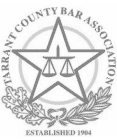Red Flags to Be Aware of When Signing a Commercial Lease
 For entrepreneurs and business owners, finding a commercial property to run your business out of is often a significant challenge. Once an adequate space is secured, the next step is to sign a commercial lease agreement and make the landlord-tenant relationship official. Unfortunately, most business owners are juggling countless responsibilities, so it is easy for them to overlook red flags in the lease agreement. Signing a bad lease can lead to unnecessary costs and major legal headaches down the road.
For entrepreneurs and business owners, finding a commercial property to run your business out of is often a significant challenge. Once an adequate space is secured, the next step is to sign a commercial lease agreement and make the landlord-tenant relationship official. Unfortunately, most business owners are juggling countless responsibilities, so it is easy for them to overlook red flags in the lease agreement. Signing a bad lease can lead to unnecessary costs and major legal headaches down the road.
Unclear or Ambiguous Terms
A lease should provide detailed information about the obligations and expectations of both the landlord and the tenant. If there is anything that is not clear, it is important to ask questions before signing the lease. Get the answers in writing. Ambiguous or overly broad language can be used to exploit a tenant's ignorance and can leave them vulnerable in the event of a dispute.
Lack of Flexibility
Your business will inevitably grow and change, and consequently, so will your needs. Make sure you understand your options for terminating your lease, contracting your space, and expanding it, if necessary. Does the lease require a certain amount of notice before making a change, and if so, who should be notified? Are there penalties for early termination? A good commercial lease should be flexible to accommodate the needs of both parties over time.
Unfair Demolition Clauses
Demolition clauses can be used by a landlord to nullify the lease agreement if they decide to demolish the property. If this is included in your lease, ask for clarification on how much notice you will receive before any potential demolition and what kind of compensation you will receive should it occur. It's also important to get confirmation from the landlord as to whether any other businesses in the same building have similar demolition clauses.
Vague Cancellation Clauses
Under certain circumstances, a landlord can contain the right to cancel a lease agreement. If this is included in your lease, ask for clarification as to when, why, and how it may be used. Cancellation clauses should typically include language that outlines notice requirements and compensation of rent or relocation costs if necessary.
Use Clauses That Limit Your Ability to Change and Adapt Your Business
Use clauses require business owners to stick with a specific type of business. These clauses can inhibit a business owner's ability to grow or make changes to their business over time. Make sure that the lease does not contain any unreasonable prohibitions, and if they do, try to negotiate them out.
Contact our Business Law Attorneys
At Cain & Kiel Law, we know that business owners have enough to worry about. Let our experienced Hood County business law attorneys make sure that your lease agreement is fair and meets your needs. Call 817-645-1717 to set up a consultation.
Source:
https://www.forbes.com/sites/forbesrealestatecouncil/2021/07/15/eight-critical-risk-items-within-a-commercial-real-estate-lease/
We're Here When You're Ready
To set up a consultation with our attorneys and get the legal help you need, please call 817-645-1717 or fill out the form below:
The use of the Internet or this form for communication with the firm or any individual member of the firm does not establish an attorney-client relationship. Confidential or time-sensitive information should not be sent through this form.
I have read and understand the Disclaimer and Privacy Policy.

 817-645-1717
817-645-1717









